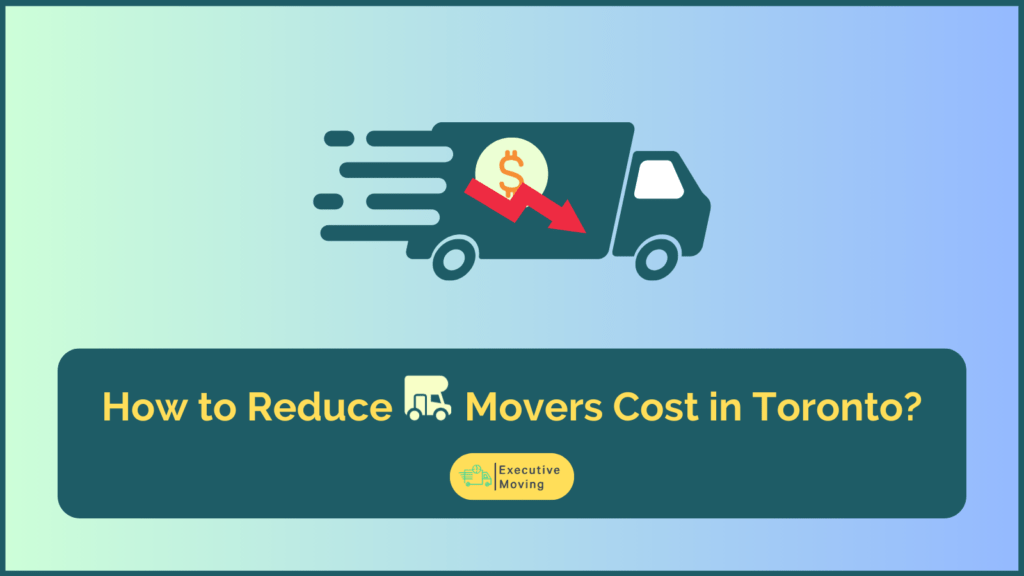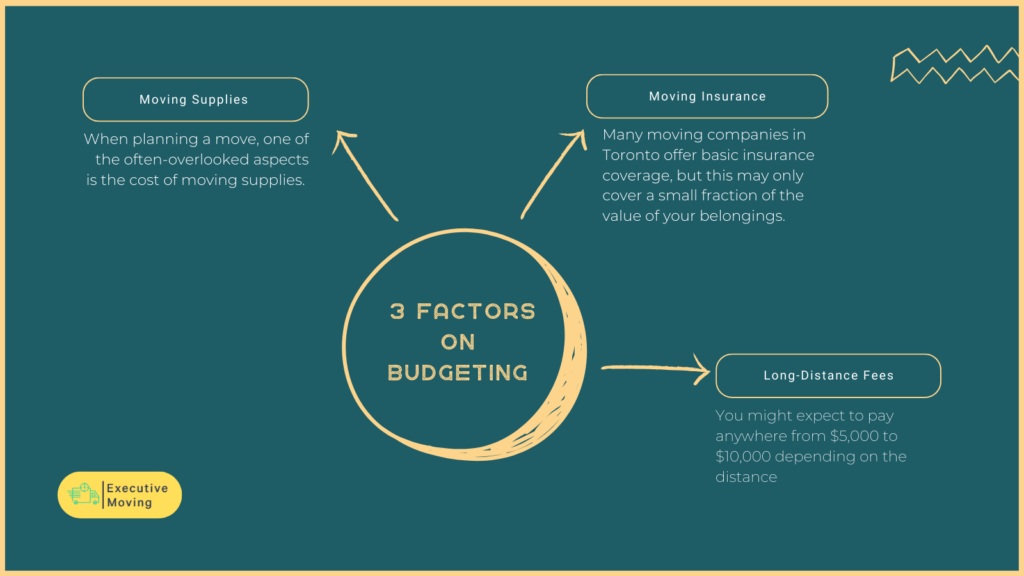When planning a move in Toronto, understanding the moving cost is crucial for budgeting effectively. The average moving cost in Toronto can vary depending on several factors, including the size of your home, the distance of the move, and whether you hire professional movers.
For a local move, the average cost of moving typically includes the hourly rates of 2 movers, the moving truck, and any additional services like packing or furniture disassembly.
On average, the moving cost in Toronto can range from $500 to $1,500, but this can increase based on the complexity of the move. To get a more accurate estimate, it’s wise to use a moving cost calculator or request moving estimates from different companies. By comparing moving quotes, you can find the best value and potentially reduce your overall cost of moving in Toronto.
Here are a few DIY strategies that can help you save money:
1. Pack Your Own Belongings
Professional packing services can be expensive, so consider doing it yourself. Start by gathering packing materials well in advance.
You can often find free boxes at local grocery stores, bookstores, or online marketplaces like Kijiji or Facebook Marketplace. Instead of purchasing bubble wrap or packing peanuts, use items you already own, such as towels, blankets, and clothing, to cushion fragile items.
2. Declutter Before You Move
Go through your belongings and decide what you really need to take with you. Consider donating, selling, or recycling items that you no longer use or need.
Not only will this reduce the weight and volume of your move, but it might also put some extra cash in your pocket if you sell items through a garage sale or online platforms.
3. Rent a Moving Truck
Instead of hiring a full-service moving company, consider renting a moving truck and doing the move yourself. This is particularly cost-effective for shorter moves within Toronto or the surrounding area.
Renting a truck from companies like U-Haul, Budget, or Enterprise can be much cheaper than paying for a professional moving service.
Just make sure you have enough help from friends or family to load and unload the truck safely.
4. Enlist Help from Friends and Family
If you enlist the help of friends and family, you can save significantly on labor costs. Offer to return the favor when they need help moving or consider hosting a moving day party to make the experience more enjoyable.
Providing food and drinks as a thank you for their assistance is still far less expensive than paying for professional movers.
5. Handle Small Moves Yourself
If your move involves only a few items, consider handling it yourself using your own vehicle or a rental van.
For example, if you’re moving out of a small apartment or need to transport a few pieces of furniture, renting a van or using your car can save a lot of money compared to hiring movers.
6. Compare Moving Quotes
Not all moving companies are created equal, and prices can vary widely. It’s important to shop around and get multiple quotes from different movers in Toronto.
When comparing quotes, make sure to consider what services are included. Look for a company that provides a detailed estimate with all potential fees included, so you know exactly what you’re paying for.
7. Move During Off-Peak Times
The timing of your move can have a significant impact on the cost. In Toronto, the summer months, weekends, and the first and last weeks of the month are the busiest times for movers.
During these peak times, moving companies tend to charge higher rates due to high demand. If possible, schedule your move during the off-peak season, such as fall or winter, or mid-month and mid-week.
Not only will you save money, but you may also find that movers have more availability, giving you greater flexibility in choosing your moving date.
8. Choose a Smaller Moving Company
These companies may be more flexible in their pricing and more willing to negotiate. Do your research and read reviews to find a reliable local moving company in Toronto that fits your budget.
9. Opt for Basic Services
To save money, consider opting for the basic service where the movers only load, transport, and unload your items.
You can take care of the packing, disassembling, and reassembling furniture yourself. This approach allows you to benefit from professional transportation services without paying for the extra bells and whistles.
10. Use a Moving Calculator
By inputting this information, you can get a rough estimate of what your move will cost, which can help you budget more effectively. Many moving company websites offer free moving calculators that you can use to compare costs between different providers and services.
11. Reduce Moving Day Expenses
Moving day can come with unexpected expenses, such as buying last-minute packing supplies, ordering takeout because your kitchen is packed, or even paying for parking tickets if you’re not careful. Plan ahead to minimize these costs. DIY
Pack a “moving day essentials” box with snacks, water, basic cooking supplies, and toiletries, so you don’t have to spend money on these items during the move. Also, research parking regulations at both your old and new home to avoid costly fines.










